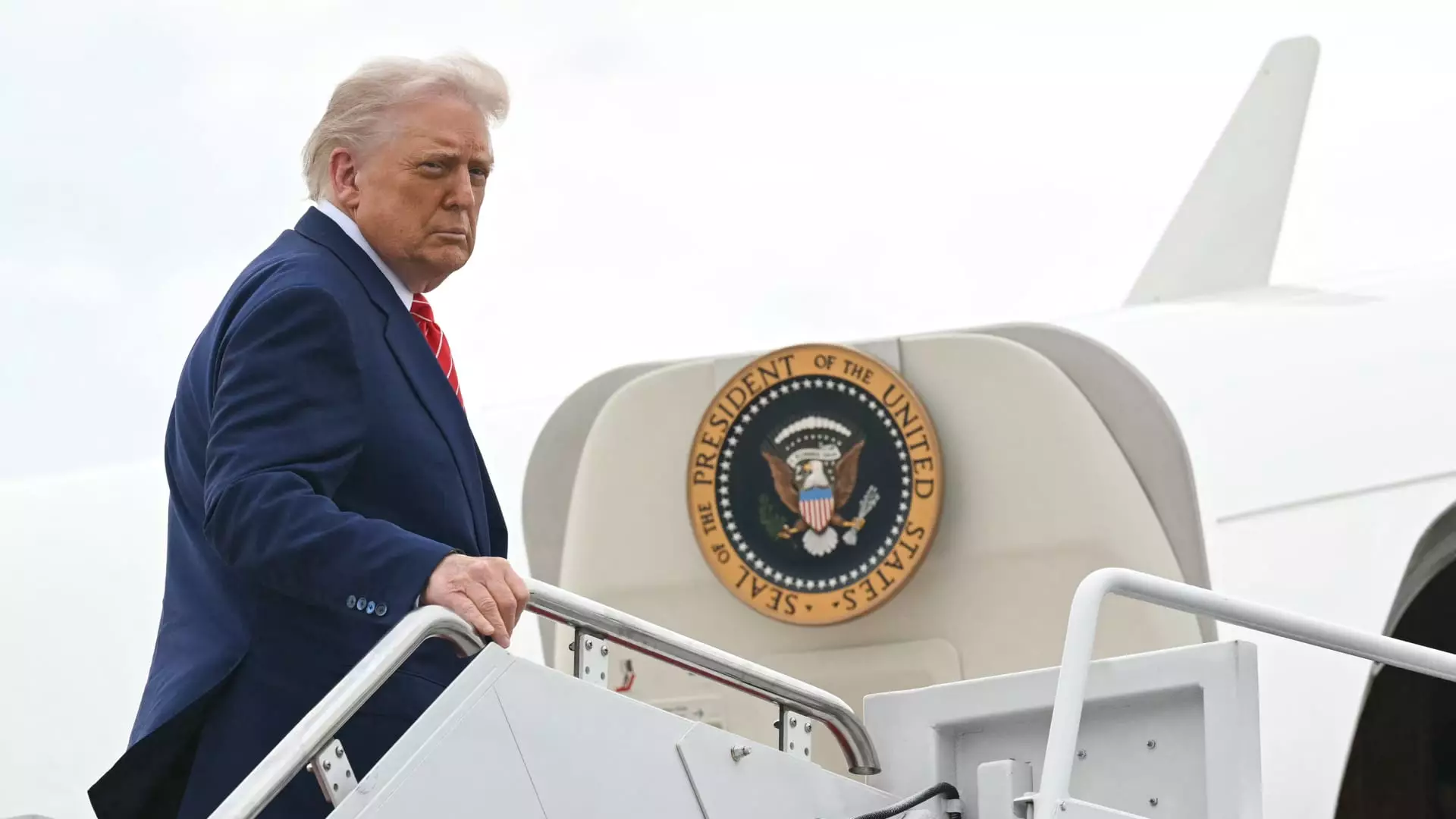In a world where economic strategy and legal frameworks collide, the ongoing saga of Donald Trump’s tariffs illustrates a precarious balancing act that threatens to upend not just his policies but also the global economic order we have come to understand. Despite a federal court’s determination that Trump overstepped his presidential powers in imposing widespread tariffs, key figures within his administration, notably Commerce Secretary Howard Lutnick, exhibit unwavering confidence about the continuation of these tariffs. The administration clings to the notion that tariffs are a cornerstone of its economic strategy, as they anticipate formidable legal challenges that could eventually escalate to the U.S. Supreme Court.
It’s alarming how this situation has become a battleground not only for economic policy but for broader interpretations of presidential authority. The hints of overreach concern many citizens and economic analysts who fear the implications of allowing a president to wield such unfettered power to impose financial penalties on foreign nations. In this light, Lutnick’s remarks on “Fox News Sunday” can sound more like a rallying cry than grounded governance, failing to address the robust legal arguments against the tariffs’ legitimacy.
The Tariff Trap: A National Emergency?
The Trump administration’s justification for these tariffs hinges on the ambition to confront what they describe as “a national emergency” instigated by persistent trade deficits. However, one can’t help but scrutinize this rationale in the context of the International Emergency Economic Powers Act (IEEPA), which was designed for immediate and urgent national threats, not as a tool for long-term economic strategy. The Court’s ruling underscores the importance of adhering to the rule of law, reminding us that even lofty economic ambitions should not operate in a vacuum devoid of judicial oversight.
Moreover, this framing of trade deficits as a “national emergency” reveals a striking disconnect between populist rhetoric and economic reality. Does Donald Trump truly believe that slapping tariffs on imports will rectify the complex, systemic issues underpinning trade deficits? This approach feels more reactionary than strategic; driven by the desire to single out scapegoats rather than engage in necessary economic reforms.
A Precarious Legal Play
The response from key administration officials, such as National Economic Council Director Kevin Hassett, indicates that they expect the courts to favor them. Statements such as Hassett’s confident claim that the Supreme Court will uphold the tariffs reveal an underlying arrogance—a belief that judicial principles can be bent to political will. While confidence is essential in leadership, blind optimism in legal matters risks exacerbating tensions between the executive branch and the judiciary.
The mention of “other alternatives” to impose tariffs, as Hassett hinted at, is unsettling. What alternative methods exist? Are they more artistic legal maneuverings, or is it simply a ploy to bypass judicial scrutiny? This approach casts a shadow over the integrity of trade policymaking and raises questions about the administration’s commitment to equitable international relations.
The Ripple Effect on International Relations
Every tariff imposed resonates far beyond the U.S. borders; they signal to other countries how America intends to engage on the global stage. The bold yet reckless use of tariffs could alienate longstanding allies and incite retaliatory measures from nations that feel unjustly treated. Trump’s rhetoric about countries “holding the nation hostage” illustrates a worrying tendency to frame international relations in zero-sum terms. This conflict-centric view fails to recognize the potential for cooperative economic arrangements that could be mutually beneficial.
Furthermore, the implications of a ruling against the tariffs—potentially limiting executive power in trade matters—pose a genuine concern for future administrations. Lutnick’s comment about the ripple effects speaks volumes; it underscores how judicial pushback on tariffs could usher in a new era of more balanced and fair trade relations—one that prioritizes negotiation and dialogue over blunt economic force.
In the end, the fate of these tariffs represents more than an immediate economic strategy; it encapsulates a deeper philosophical debate about the role of government interference in trade and the boundaries of presidential authority. In a nation striving to uphold the principles of democracy and rule of law, it is essential that we scrutinize these economic policies and demand accountability rather than simply acquiescing to a paternalistic governance style that prioritizes short-term gains over long-term stability.

